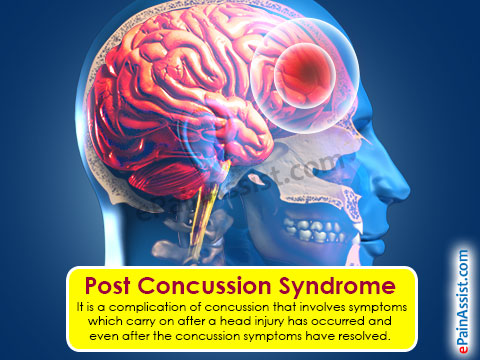
Treating Concussion Symptoms And Post Concussion Syndrome (3/3)
Posted in:
This post is by Paige Decker from the The Invisible Injury. In November of 2013, while playing for Yale’s Women’s Ice Hockey Team, she suffered a head injury that then only seemed minor. What she couldn’t have predicted then was that the next 22 months (and counting) would consist of a battle with a concussion so severe in its symptoms that it would go on to change her life forever.
There is a lot of talk about what to do immediately after suffering a concussion (rest, no electronics, use fish oil, etc.) but not enough about what to do if an individual isn’t recovering in the typical 7-10 day timeline.
Dr. Jeffrey Kutcher, a leading concussion expert, notes that if a patient has not recovered from his or her concussion within two months, that means they aren’t getting the right care or treatment. This can lead to post-concussion syndrome which causes concussion symptoms such as headaches and dizziness to last for weeks and sometimes months after the injury.
 This is a brief guide outlining some doctors and treatment options that individuals suffering from a concussion or post concussion syndrome can explore while progressing through recovery. There is no size fits all solution for concussions. Since there are many issues that can contribute to concussion symptoms, different medical specialties will be necessary for varying situations.
This is a brief guide outlining some doctors and treatment options that individuals suffering from a concussion or post concussion syndrome can explore while progressing through recovery. There is no size fits all solution for concussions. Since there are many issues that can contribute to concussion symptoms, different medical specialties will be necessary for varying situations.
**Keep in mind, I am not a doctor. This information is based on my own experience and what was recommended to me**
What type of doctor should I see first?
Your first step should always be to visit a primary care doctor or neurologist. These doctors can help diagnose the injury and run relevant tests (including an MRI, CT Scan, and blood samples) to determine the extent of damage.
If some of your symptoms are more acute than others, consider seeking out a specialist based on you:
Find a specialist based on your symptoms
Symptom – Neck Pain
Identify a reputable Physical Medicine and Rehabilitation doctor, Osteopathic doctor, or physical therapist if you experience neck pain or tension with a concussion. I emphasize reputability because not enough doctors know how to appropriately treat an injury like this. And this brings me to a point of caution: do not let anyone put injections in your neck. All of my issues with Post Concussion Syndrome were generated from my neck, and it took me a long time to find the right professionals to diagnose and treat this appropriately.
Muscle tension in the neck and base of the skull can restrict blood flow to the brain, contributing to cognitive symptoms, and can restrict the nerves, which generates pain and headaches. These issues can be treated with a comprehensive stretching and strengthening routine. This is what helped me more than anything else.
I’ve seen a lot of different doctors to evaluate my neck, and there is no place more comprehensive and specialized than Terry Moore’s MMTR physical therapy concussion program in Guelph, Ontario. I have made the most progress, in the shortest amount of time, with the MMTR treatment plan.
Symptom – Balance Problems
Seek an evaluation by a vestibular therapist or neurological chiropractor if you suffer from abnormal balance and coordination, vertigo, dizziness, blurred vision and/or visual tracking issues.
The vestibular system includes the parts of the inner ear and brain that process sensory information involved with controlling balance and eye movements. These doctors will evaluate any abnormalities and suggest various eye exercises to help return the brain to normal function.
Symptom – Visual Impairments
An evaluation by a neuro-optometrist might be useful if an individual is suffering from eye issues, including convergence, visual coordination or blind spots. Neuro-optometry is a form of vision care combining neurology and optometry to assess how the brain processes information sent from the eyes.
The College of Optometrists in Vision Development website is useful to learn more and easily locate doctors near your hometown.
Symptom – Mental Health
Neuropsychologists, psychiatrists and sports psychologists are professionals worth considering if an individual experiences any mood changes or mental health symptoms associated with the concussion. Neuropsychologists can evaluate the extent of cognitive and behavioral abnormalities through extensive psychological testing. The IMPACT Test is a common concussion test developed within the neuropsychology field.
Do you have a recommendation for a doctor?
If you’re looking for a comprehensive evaluation by a team of doctors, Dr. Jeffrey Kutcher’s Sports Neurology Clinic in Brighton, Michigan is the place to go. I credit this program for finally getting me on the right recovery track after spending a whole year and half searching for answers!
